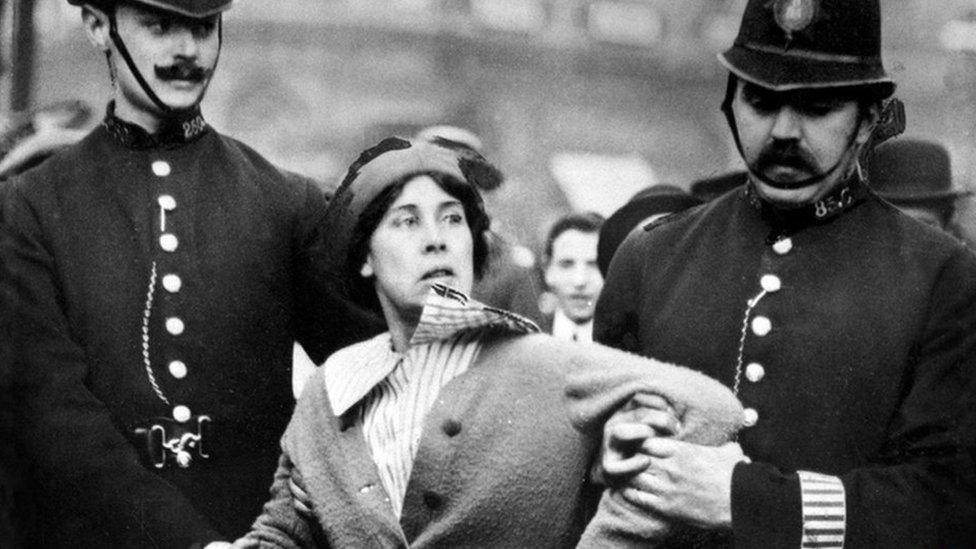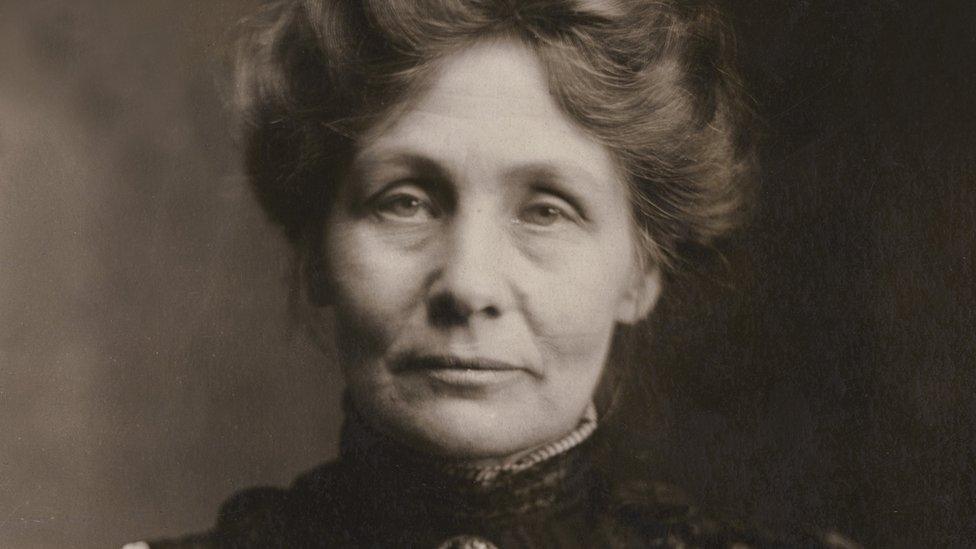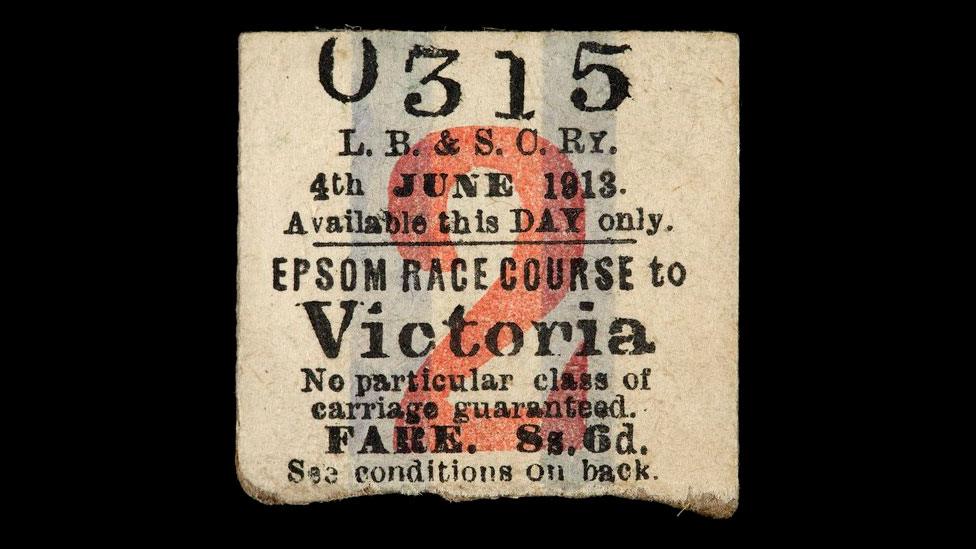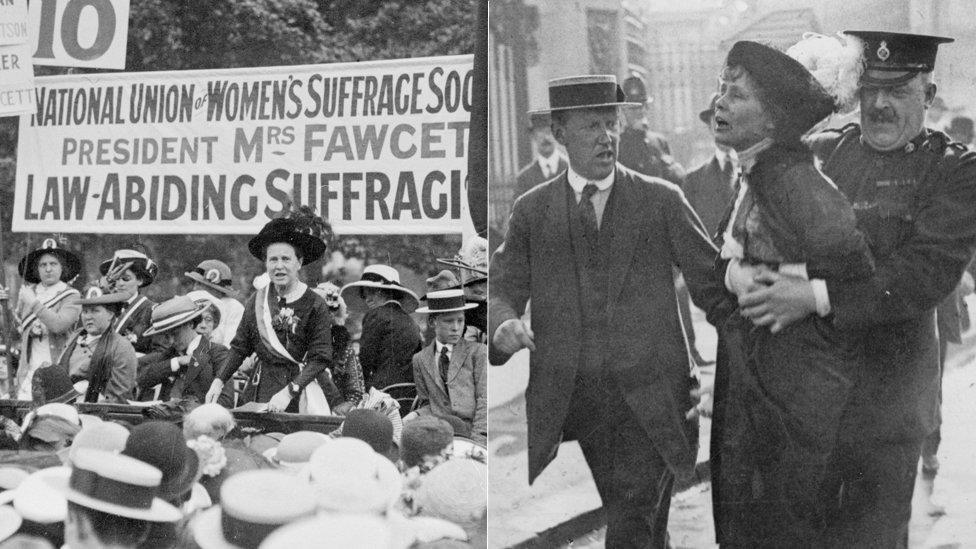Trump to pardon women's voting pioneer Susan B Anthony
- Published
Trump to pardon 19th century women's rights activist Susan B Anthony
President Donald Trump has said he will issue a posthumous pardon for women's voting rights pioneer Susan B Anthony.
Making the announcement on Tuesday - the centennial anniversary of the 19th amendment, which granted US women the right to vote - Mr Trump said: "She was never pardoned. What took so long?"
Anthony was arrested in 1872 after illegally casting her vote.
She was later convicted of illegal voting in her home state of New York by an all-male jury.
Anthony died 14 years before the 19th amendment was ratified on 18 August, 1920.
With his wife Melania Trump beside him for a White House event, Mr Trump also signed a proclamation commemorating the 100th anniversary of the 19th amendment.
Last week, Mr Trump announced his support for a monument in Washington DC to honour the women, known as suffragettes, who petitioned for the right to vote.
"Women dominate the United States - I think we can say that very strongly," he said, noting that there are now a record number of women serving in Congress.
His announcement comes as Mr Trump tries to win over suburban women voters, who polls show have been moving away from him since 2016.
It also comes amid a controversy over mail-in voting, in which critics say Mr Trump is trying to delegitimise the coming presidential election in November by starving the US Postal Service of funds.
It did not take long for Mr Trump's pardon to spark controversy. Hours after the announcement, Kathy Hochul, New York's lieutenant governor, tweeted: "As [the] highest ranking woman elected official in New York and on behalf of Susan B Anthony's legacy, we demand Trump rescind his pardon.
"She was proud of her arrest to draw attention to the cause for women's rights, and never paid her fine. Let her rest in peace."
Who was Susan B Anthony?
Anthony was convicted in a highly publicised trial of illegally voting as a woman, and was fined $100 by the judge in her hometown of Rochester, New York.
In a speech to the court, she chastised the government for barring women from voting, and vowed to never pay a penny of the fine.
Her arrest brought attention to the voting equality movement, and helped launch her onto the national stage. She went on to merge the country's two largest suffragette groups and travelled the US giving speeches and holding rallies.
In recent years, women have honoured her legacy by visiting her gravestone in Rochester on election day in November.
Thousands turned up there in the 2016 race between Hillary Clinton - the first female presidential candidate for a major political party - and Mr Trump.
After the 2018 midterm race, dozens of people posted their "I Voted" stickers on her tombstone, according to AP News.
Her legacy has also become increasingly divisive, with some critics saying she marginalised African-American champions of women's voting.
While her position on abortion has been disputed, one prominent anti-abortion lobbying group has adopted her name for their cause.
The president of the anti-abortion Susan B Anthony List was invited to attend Tuesday's White House ceremony, which also included other prominent conservatives.
Who else has Mr Trump pardoned?
This will be the 26th pardon of Mr Trump's presidency.
Most recently, he commuted a 40-month jail sentence for his long-time ally Roger Stone, who was convicted in 2019 of lying to Congress and witness tampering.
In February, he commuted the jail sentenced of former Illinois Governor Rod Blagojevich, who was convicted of trying to sell Barack Obama's senate seat when he left it to assume the presidency.
- Published8 October 2015

- Published8 June 2018

- Published8 February 2018

- Published6 February 2018
